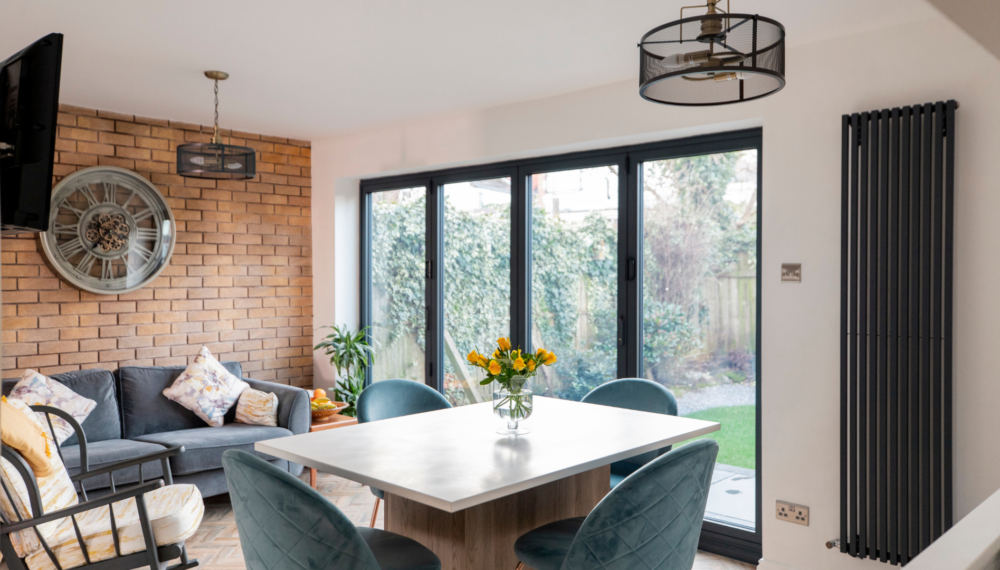
A second home comes with its own set of challenges and regulatory intricacies
Acquiring a second home comes with its own set of challenges and regulatory intricacies. Among the considerations, Stamp Duty on additional properties is a financial element that demands thorough understanding.
Stamp Duty represents a significant facet of the property transaction process, especially when it involves purchasing additional properties. Unlike the straightforward application for primary residences, the rules governing Stamp Duty for second homes are nuanced and require careful consideration.
The Stamp Duty threshold is lower if you own one property but buy another. If the second property is worth more than £40,000, you’ll have to pay Stamp Duty for second homes.
You’ll also pay more Stamp Duty when buying an additional property. This is known as the Stamp Duty surcharge. This is set at a minimum of 3% in England and Northern Ireland. Whereas in Wales, it’s a minimum of 4% and in Scotland, a minimum of 6%.
These rates apply until March 31, 2025, providing a level of predictability for buyers and the real estate market. It’s also worth noting that these rates apply only to the portion of the property price within each bracket, not the entire cost.
Stamp Duty applies solely to transactions within England and Northern Ireland. Scotland and Wales enforce their variants, named Land and Buildings Transaction Tax and Land Transaction Tax, each with unique rates and guidelines.
When purchasing a second property, being aware of the elevated Stamp Duty rates is vital. These heightened rates are determined by several factors, including the property’s value, residential or non-residential designation, and location. This additional cost underscores the necessity for comprehensive financial planning among prospective buyers.
Understanding the implications of acquiring a second home is paramount. With Stamp Duty constituting a considerable portion of the investment, being well-informed about the specific rates, exemptions, and calculations is crucial for making a successful and financially sound property acquisition.
Whilst it is often expected that Stamp Duty charges can only be avoided partially, there are several schemes and exceptions that could significantly reduce your payable amount.
A vital aspect for those purchasing an additional property is the possibility of qualifying for main residence relief. This relief may drastically decrease the financial burden, primarily when the purchased property is intended to replace the buyer’s primary residence. For instance, if the purchase of your second home is to replace your primary residence, and you sell your former principal residence within three years of acquiring the new one, you may request a refund on the higher Stamp Duty rate paid.
Therefore, on a property purchase in England and Northern Ireland of £350,000, you would initially pay 3% on the first £250,001 and then 8% on the remaining amount up to £350,000, which equates to £15,500 in Stamp Duty. Within three years, a refund of £10,000 could be claimed if your second property transitions to your primary residence.
Multiple properties acquired simultaneously may be classified as linked transactions, thereby impacting the calculation of Stamp Duty. Grasping these details is essential for precise financial forecasting. Since 2016, transactions have been deemed linked when they involve the same buyer and seller across two or more property deals.
This classification requires the buyer to cover any Stamp Duty owed on the collective value of all linked properties, which could result in a higher Stamp Duty rate than separate transactions. For more detailed guidance, consult the HM Revenue & Customs website or a tax professional.
Inheritance and divorce settlements
An exemption is afforded when property is acquired through inheritance, contingent upon the absence of monetary exchange. Similarly, the reallocation of property ownership to an ex-spouse during divorce proceedings may also be exempt from Stamp Duty, provided no third parties are involved, and a court order or a ratified written agreement sanctions the transfer. These provisions offer a financial reprieve for individuals navigating the complexities of property inheritance and divorce settlements.
Leasehold purchases and thresholds
When it comes to leasehold properties, the duration of the lease plays a pivotal role in determining Stamp Duty liability. Exemptions apply for new or transferred leases exceeding seven years if the transaction value and annual rent are under £40,000 and £1,000, respectively. Conversely, leases shorter than seven years may also fall outside the scope of Stamp Duty, provided their purchase price is below the designated residential or non-residential thresholds.
Alternative financial practices
Alternative arrangements may facilitate exemption from Stamp Duty for individuals adhering to specific financial practices, such as those dictated by Sharia law. Under such arrangements, the responsibility for Stamp Duty payment is transferred to the financial institution, which facilitates the property acquisition. This approach provides a method for aligning property purchasing with religious principles while mitigating potential Stamp Duty charges.
Strategic financial planning
Procuring a second home in the UK is often accompanied by substantial financial outlay, exacerbated by increased Stamp Duty fees. Strategic financial planning, encompassing careful budgeting for these additional costs, is crucial for potential buyers. A proactive approach to financial planning can empower individuals to manage the implications of Stamp Duty more effectively, ensuring a more informed and financially viable property acquisition process.
Professional advice will provide invaluable clarity when considering the purchase of a second property and seeking further information or guidance on Stamp Duty or related financial considerations. We can help you make an informed decision, ensuring your purchase aligns with your financial circumstances and long-term goals. To discuss your options, contact our specialist team.